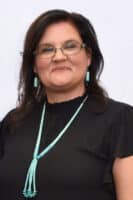By Michael Werner and Christina Kazhe
The COVID-19 pandemic has brought the country to a crawl. Lawmakers and consumers alike are rightly worried about the economic security of shuttered bars, restaurants, and retail locations. But many have largely ignored the nation’s charities.
COVID-19 has the potential to devastate non-profit organizations, which provide essential services to vulnerable populations, fund biomedical research, support education, and employ millions of Americans. Social distancing and donor uncertainty prevent these organizations from hosting crucial fundraisers and food drives, recruiting volunteers, and in some cases delivering their services to those in need.
It’s time for Congress to prioritize emergency funding for non-profits. These funds will help maintain vital services and protect a vital pillar of our economy.
COVID-19 has disrupted the nation’s non-profits just when many citizens need them most. The American Red Cross – which provides 40 percent of the nation’s blood supply – has had to cancel 7,000 blood drives since March 1st, resulting in 200,000 lost donations. Such a severe shortage of blood puts lives at risk. Hospitals need a constant flow of donations to treat cancer patients, trauma victims, and others.
Many of the 3.3 million Americans who recently filed for unemployment will soon turn to The Salvation Army for food, shelter, and financial assistance. But COVID-19 has forced The Salvation Army to close many of its donation centers and retail stores.
Feeding America has seen a “sharp decline” in volunteers. The organization is one of many hunger relief organizations scrambling to retain staff and keep their shelves stocked in the face of a sinking economy.Seattle-based Food Lifeline has gone from 18,000 to 20 volunteers, just as it expects demand for its services to double. The organization no longer has the capacity to sort food donations and has resorted to purchasing pre-packaged boxes of food.
COVID-19 has also dealt a severe blow to America’s cancer research non-profits. The Lymphoma Research Foundation has postponed all in person programs events, including free patient and professional education programs and fundraising events, at least until this summer, to protect the patients who attend these events and who are at higher risk for severe complications from the novel coronavirus.
With hospitals canceling non-essential visits, cancer patients will rely on organizations like the Lymphoma Research Foundation to provide information about how to manage their disease. And since cancer patients are particularly vulnerable to COVID-19, they’ll look to non-profit organizations like LRF for support and ways to stay healthy throughout the pandemic.
Finally, Partnership With Native Americans (PWNA) provides essential services for those living on remote reservations. Native Americans are extremely susceptible to COVID-19 due to overcrowded housing, higher rates of diabetes and respiratory illness, and limited healthcare options. Nearly 50 percent of grandparents raise their grandchildren, putting themselves at risk of contracting the virus. And tribal communities often live in food deserts.17 The Navajo Nation, for instance, spans three states and has only 13 grocery stores.
PWNA, one of the largest non-profits serving Indian Country, is still making critical deliveries of food, water, sanitizer, toilet paper and other essentials to hundreds of tribal communities, even those with travel restrictions and shelter in place orders. But as COVID-19 increases demand, PWNA’s warehouse supplies are running low.
By providing emergency funds to non-profit organizations, both large and small, Congress could help the economy as well as vulnerable Americans. Over 1 million charitable non-profits employ more than 12 million people in the United States and contribute $1 trillion to the economy each year. Sustaining these groups through our present crisis will help lessen the economic turmoil wrought by COVID-19.
Lawmakers are right to provide economic relief to shuttered shops and restaurants. But they also need to assist the soup kitchens, social service organizations, cancer research foundations, and other groups that will support vulnerable Americans throughout the COVID-19 outbreak and beyond. Now more than ever, we need our non-profits.
About the Authors
Michael Werner, LRF Board Chair

Michael Werner is the immediate past Chair of the Lymphoma Research Foundation’s Board of Directors and is a lymphoma survivor. He is the Founder and CEO of Chicago-based Home Experience, LLC, a digital and services company enhancing the home ownership experience. Werner is the former President and CEO of Globe Union Group, Inc., and is a long-standing Board member of the Chicago Council on Global Affairs.
Christina Kazhe, PWNA Chairman of the Board

Christina Kazhe specializes in protecting the interests of Native American such as tribal sovereignty, legal and public policy and federal recognition. Founder of The Kazhe Law Group, she holds a Juris Doctor from Boalt School of Law at UC Berkeley and a Bachelor’s in Human Development and Native American Studies from the University of California, Davis. Christina is a member of the Navajo Nation and affiliate to the Mescalero Apache Tribe.
